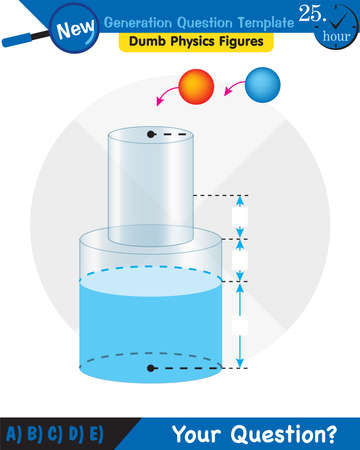1. Understanding Water Conservation in the Modern U.S.
Water is essential to both life and the natural balance that Zen and Feng Shui seek to honor. In the United States, water conservation has become a growing concern as communities face droughts, aging infrastructure, and increasing demand. Lets explore how American homes and neighborhoods are adapting to these challenges, while also embracing sustainable practices that reflect harmony with nature.
The Challenges of Water Conservation Today
Many areas in the U.S., especially in the West and Southwest, regularly deal with water shortages. Climate change has intensified drought conditions, making it more important than ever to use water wisely. At the same time, old plumbing systems can lead to leaks and wasted water, costing homeowners money and straining local resources.
Main Water Conservation Challenges
| Challenge | Description |
|---|---|
| Drought & Climate Change | Reduced rainfall and rising temperatures put pressure on local supplies. |
| Aging Infrastructure | Leaky pipes and outdated systems cause significant water loss. |
| Population Growth | More people means more demand for limited water resources. |
| Lawn & Garden Use | Traditional landscaping can consume large amounts of water. |
Innovative Solutions for American Homes & Communities
Across the country, people are finding creative ways to conserve water without sacrificing comfort or beauty in their living spaces. These solutions not only help protect the environment but also reflect Zen principles of simplicity and balance.
Popular Water-Saving Practices
| Practice | How It Helps |
|---|---|
| Low-Flow Fixtures | Showers, toilets, and faucets designed to use less water per use. |
| Rain Barrels | Collecting rainwater for watering gardens and lawns. |
| Xeriscaping | Landscaping with drought-tolerant plants that require minimal watering. |
| Smart Irrigation Systems | Sensors and timers ensure plants get just enough water at optimal times. |
| Community Education Programs | Workshops and campaigns teaching families how to save water every day. |
The Importance of Sustainable Water Practices
Sustainable water habits dont just protect the planet—they can also bring peace of mind. By using only what we need and respecting natural cycles, we create homes that align with both modern eco-friendly values and ancient Feng Shui wisdom. Simple changes, like fixing leaks or switching to native plants, can make a big difference when practiced widely across neighborhoods. Embracing these habits supports healthier communities and helps preserve clean water for future generations.
2. Core Principles of Zen and Feng Shui
Understanding Zen Philosophy
Zen is a branch of Buddhism that emphasizes mindfulness, simplicity, and being present in the moment. In everyday life, Zen encourages us to notice the beauty in our surroundings and find peace through simplicity. This philosophy values living in harmony with nature, using resources thoughtfully, and creating calm spaces where the mind can relax.
Main Elements of Zen Philosophy
| Element | Description |
|---|---|
| Mindfulness | Being aware and fully present in every action or thought. |
| Simplicity | Embracing less clutter and focusing on what truly matters. |
| Harmony with Nature | Respecting natural resources and finding balance with the environment. |
The Basics of Feng Shui
Feng Shui is an ancient Chinese practice centered around arranging spaces to promote good energy flow, known as “chi.” The goal is to create environments where energy moves smoothly, supporting health, happiness, and prosperity. Feng Shui often uses elements like water, wood, earth, metal, and fire to achieve this balance. In American homes, these concepts can be applied by organizing furniture for better movement, incorporating natural elements like plants or water features, and keeping spaces open and uncluttered.
Key Feng Shui Elements and Their Meanings
| Element | Symbolizes | How to Use at Home |
|---|---|---|
| Water | Flow, abundance, renewal | A small fountain or fish tank in a common area |
| Wood | Growth, vitality | Add houseplants or wooden décor items |
| Earth | Stability, support | Ceramic pots or stones as decorations |
| Metal | Clarity, precision | Use metallic frames or objects for accents |
| Fire | Passion, energy | Candles or warm-colored lights for ambiance |
Balance, Flow, and Harmony with Nature
Both Zen and Feng Shui teach us that balance is essential for well-being. In Zen, this means not overusing any resource—like water—and appreciating everything we have. In Feng Shui, it means arranging our spaces so energy can move freely without obstacles. When these ideas come together in our homes and gardens, they encourage us to conserve water thoughtfully while still creating peaceful environments that reflect the natural world. By understanding these core principles, anyone can start making mindful choices that benefit both their living space and the planet.

3. Intertwining Nature, Water, and Home Design
Bringing Nature Closer to Home
Incorporating natural elements into your home design is a core idea in both Zen philosophy and Feng Shui. In America, this approach can help create a peaceful atmosphere while promoting water conservation. Let’s explore practical ways you can blend water features and eco-friendly ideas inspired by these ancient traditions into your home and garden.
Eco-Friendly Water Features for American Homes
Adding water features does not have to mean wasting resources. By choosing sustainable options, you get the calming benefits of flowing water without putting extra strain on local water supplies. Here are some popular choices:
| Water Feature | Description | Eco-Friendly Tip |
|---|---|---|
| Pondless Waterfall | A stream or waterfall that recirculates water below ground, needing less maintenance and water. | Use solar-powered pumps to minimize energy use. |
| Rain Garden | Garden bed designed to collect and filter rainwater runoff from roofs or driveways. | Plant native species that need less watering and support local wildlife. |
| Reflecting Pool | A shallow pool that mirrors the sky and surroundings, bringing calmness to outdoor spaces. | Install a rainwater harvesting system for filling and topping off the pool. |
| Zen Fountain | A simple bamboo or stone fountain offering soothing sounds with minimal splash. | Select models with timers or motion sensors to reduce water usage when not needed. |
Design Tips Inspired by Zen and Feng Shui
- Balance the Elements: Mix rocks, plants, wood, and water in your yard or patio. This echoes both Zen simplicity and Feng Shui’s five elements, creating harmony in your space.
- Create Clear Pathways: Use winding paths of gravel or stepping stones around your water feature. This guides energy (or “chi”) gently through your garden, a key Feng Shui concept.
- Sustainable Materials: Choose locally sourced stones, reclaimed wood, and drought-tolerant plants for landscaping. These choices reflect respect for nature and lower your environmental impact.
- Indoor Integration: Bring small tabletop fountains or miniature rock gardens inside your home. Position them near entryways or family rooms for a calming effect as soon as you walk in.
Example: A Zen-Inspired Backyard Retreat
If you have a small backyard in California or Texas, consider adding a pondless waterfall surrounded by native grasses and succulents. Include a stone bench nearby for meditation or quiet time. Use solar lighting along the path to enhance safety and highlight the natural beauty after dark. This setup provides tranquility, supports local ecosystems, and conserves both water and energy—all while staying true to Zen and Feng Shui principles.
4. Everyday Water-Saving Practices That Align with Feng Shui
Incorporating water conservation into your daily routine doesn’t just help the planet—it also brings harmony and positive energy to your home according to Feng Shui principles. Here are some simple, practical ways to save water that fit seamlessly with American lifestyles and echo the mindful use of resources promoted in Zen and Feng Shui traditions.
Smart Water Habits for Daily Life
Small changes can make a big difference. The table below highlights easy adjustments you can make throughout your home, each aligning with both water-saving goals and Feng Shui’s focus on balance:
| Area | Water-Saving Tip | Feng Shui Benefit |
|---|---|---|
| Kitchen | Only run the dishwasher when full; scrape dishes instead of rinsing before washing | Promotes flow and efficiency, reducing stagnant “chi” (energy) |
| Bathroom | Install low-flow showerheads and faucets; take shorter showers | Keeps energy moving smoothly, prevents excess “draining” of good luck |
| Laundry Room | Wash full loads; choose eco settings on your washer | Supports balanced energy cycles, reflecting resource mindfulness |
| Outdoors | Water lawns early or late in the day; use drought-resistant plants | Nurtures a healthy environment, enhances outdoor harmony (“Sheng Qi”) |
| All Areas | Fix leaks promptly; use water-efficient appliances where possible | Prevents loss of positive energy and financial prosperity (“Wealth Qi”) |
Create Mindful Water Zones at Home
Designating specific areas for water-related activities can boost both conservation efforts and Feng Shui energy:
- Centralize Cleaning: Keep cleaning supplies in one spot to avoid unnecessary water use throughout the house.
- Bless Your Water Sources: Maintain clean sinks, taps, and fountains—cleanliness attracts good fortune in Feng Shui.
- Add Plants Strategically: Place indoor plants near sinks or bathrooms to symbolize healthy water flow and filter negative energy.
Engage the Whole Family
Sustainable habits stick better when everyone’s involved. Try these ideas for making water conservation a family value:
- Challenge Each Other: See who can take the shortest shower or spot leaks first.
- Track Progress: Use apps or charts to monitor your household’s monthly water use and celebrate improvements.
- Create Positive Rituals: Make turning off the tap while brushing teeth or scrubbing dishes a daily mindful moment.
A Win-Win Approach for Home Harmony
Simplifying your approach to water use not only supports environmental sustainability but also invites more balance, abundance, and peace into your living spaces—right in line with both American practicality and ancient Feng Shui wisdom.
5. Creating a Balanced Lifestyle: Mindfulness, Well-being, and Sustainability
Combining Water Conservation, Zen, and Feng Shui in Everyday Life
Living a balanced lifestyle goes beyond just decorating your home or saving water—it’s about creating an environment that supports your well-being, helps the planet, and feels good to live in. By blending water conservation habits with Zen mindfulness and Feng Shui principles, you can bring harmony to your American home while supporting a healthier world.
Mindful Water Use at Home
Water is essential not only in Feng Shui but also for our daily lives. In the U.S., being mindful about how we use water can make a real difference. Simple actions—like turning off the tap while brushing your teeth or choosing native plants that need less watering—help conserve this vital resource.
| Water Conservation Tip | Zen Mindfulness Practice | Feng Shui Element |
|---|---|---|
| Fix leaky faucets promptly | Practice gratitude for clean water during repairs | Maintain smooth water flow for positive energy (Chi) |
| Install low-flow showerheads | Enjoy slow, mindful showers | Encourage gentle water movement for calmness |
| Collect rainwater for gardening | Tend to your garden with awareness | Nourish life outdoors and balance elements |
| Use dishwashers and washing machines only when full | Be present and intentional with chores | Reduce clutter; promote efficient energy flow |
Bringing Harmony Into Your Living Space
The design of your home influences how you feel. In Feng Shui, water represents wealth and health, while Zen teaches us to be present and appreciate simplicity. Try adding a small indoor fountain or an aquarium in areas where you want to boost relaxation and abundance—but always keep these features clean and well-maintained to ensure positive energy.
Cultural Tips for American Homes:
- Create a “Zen zone” by setting aside a quiet space for meditation or reflection—this could be as simple as a cozy chair by a sunny window or a spot on your patio.
- Select décor in calming blues or greens to evoke water’s peaceful qualities without overwhelming the room.
- If you have kids, involve them in easy sustainability projects like recycling water from pet bowls to water houseplants.
- Host a neighborhood swap or plant exchange to encourage community well-being and eco-friendly living.
Sustainability as Part of Daily Routine
Sustainability doesn’t have to mean big sacrifices. When you combine mindful habits, thoughtful design, and responsible resource use, you naturally create a home that supports wellness—for yourself and the planet. In American culture, this can look like gathering family for nature walks, enjoying outdoor yoga sessions, or taking part in local clean-up events—all ways to connect with both nature and community spirit.

